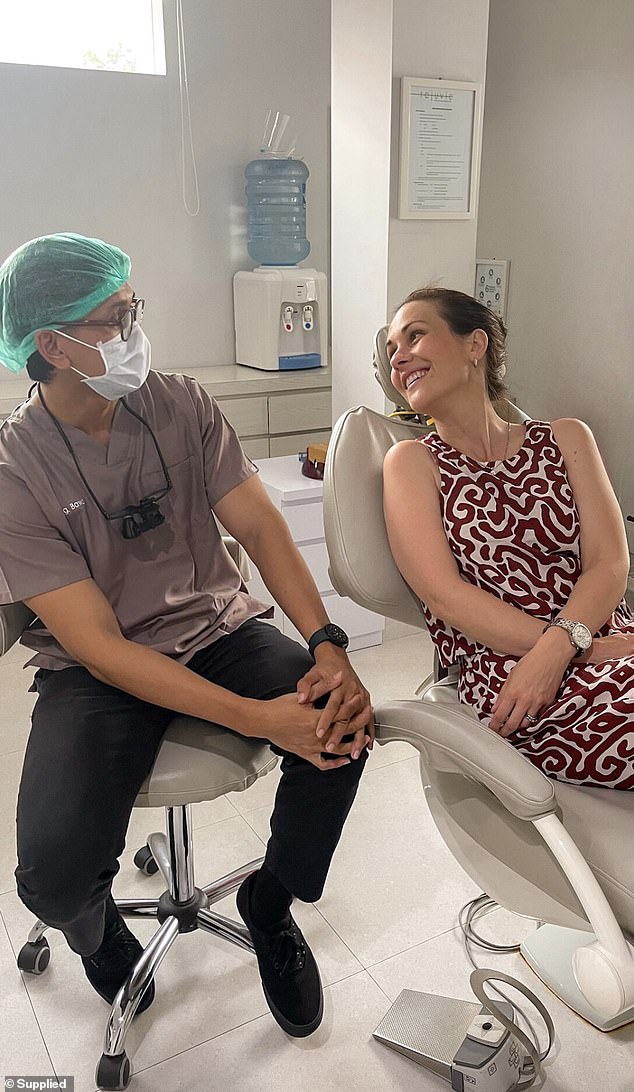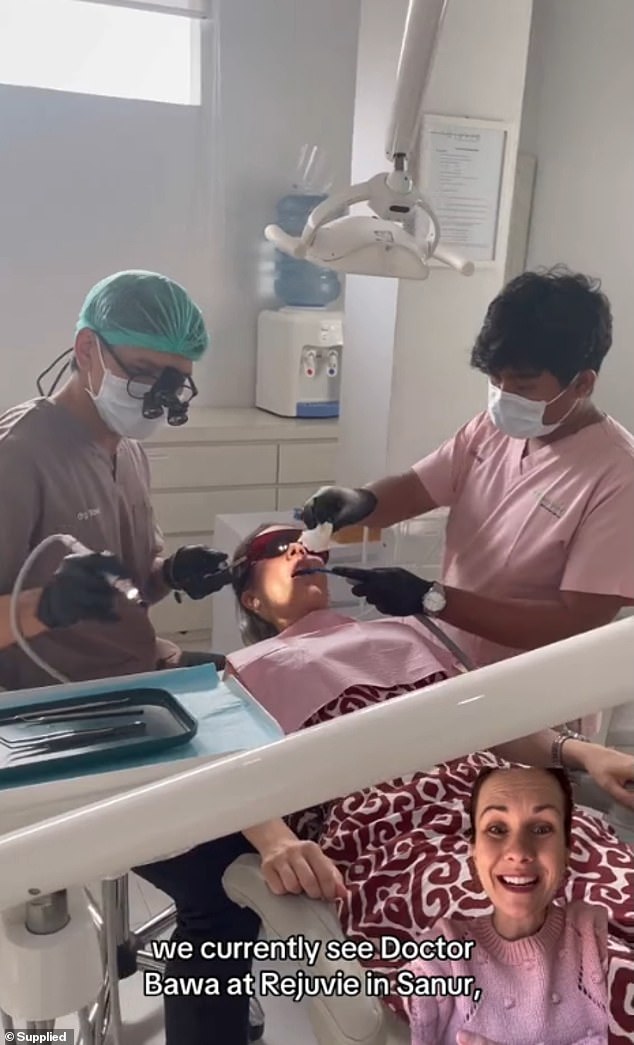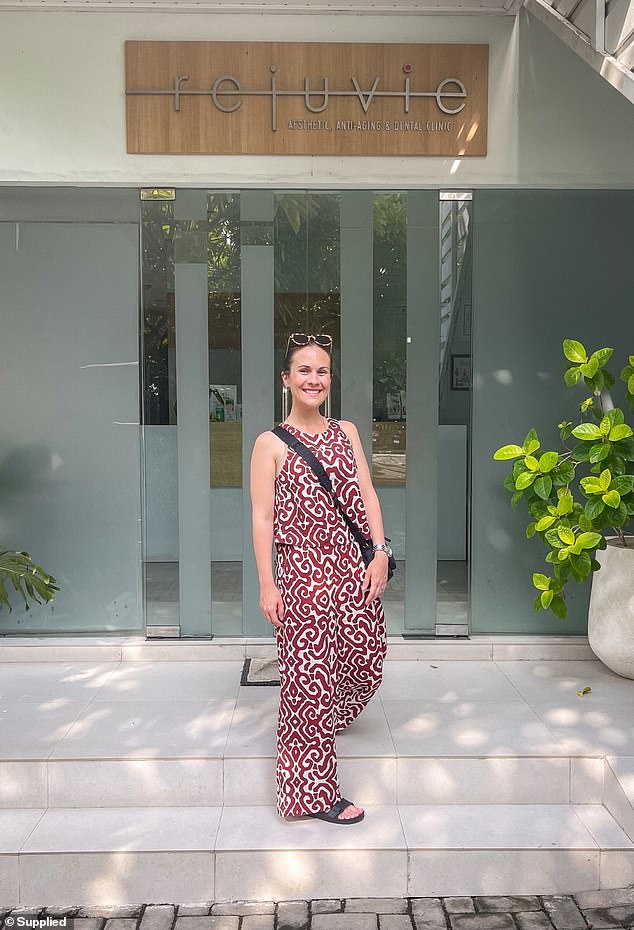A Melbourne mother has discovered it is cheaper to fly to Bali and get dental work on holiday than to seek treatment in Australia during the cost of living crisis.
Routine dental procedures, such as a cleaning, are two-thirds cheaper in Bali compared to Australia.
With airfare and resort accommodation included, a holiday in Bali costs the same as an annual visit to the dentist and private health insurance in Australia.
Kirstin Edwards, 38, has travelled to Bali annually on holiday since 2016, with the exception of 2020 and 2021 when Covid border closures were imposed, and during these trips she had her routine dental work done.
“We have been to Bali seven times and on most of those trips we received dental treatment,” she told Daily Mail Australia.
The businesswoman, who is also raising a 12-year-old stepson with her builder husband Tom Gatiss, 37, says that by ditching private health insurance she can fund a one- to three-week holiday to Bali that includes a visit to the dentist.
“Instead of paying for that private medical care every month, we put that money towards family vacations, which leave great memories,” she said.
“In a high-stress environment, it’s incredibly important to have something to look forward to.”
A Melbourne mother has discovered it is cheaper to fly to Bali and get dental work on holiday than to seek treatment in Australia during the cost of living crisis.
Ms Edwards, who sells children’s travel diaries online, joked that even visiting the dentist could be a pleasurable experience if combined with a holiday to Bali.
“You may not like that part (the dental work), but the rest of the vacation is great; I don’t mind going to the dentist,” she said.
“It’s like one or two days of your entire vacation.”
In Bali, a cleaning, check-up and Botox application to treat TMJ disorder or teeth clenching typically costs $400, or a third of the $1,300 Edwards paid in Melbourne.
Private hospital coverage and extra services for families typically cost $4,000 a year and is the kind of money that could be spent on round-trip airfare and resort accommodation for just $60 to $150 a night, a fraction of what it costs in Australia.
“If you want really luxurious accommodation, it’s still significantly cheaper,” he said.
Ms Edwards, who uses the Rejuvie clinic in Sanur, said the Balinese dentists she had used had been trained in Singapore and the United States, adding that she had had no problems with her treatment.

Kirstin Edwards, 38, has travelled to Bali annually on holiday since 2016, with the exception of 2020 and 2021 when Covid border closures were imposed, and during these trips she had her routine dental work done.

The businesswoman says that by ditching private health insurance, she can fund a one- to three-week holiday to Bali that includes a visit to the dentist.
“When I first went, I was a little apprehensive, but when I found out that our dentist at the time had had his training in Singapore and the United States, I felt very comfortable,” she said.
When asked if he would also trust a Bali dentist for more complex procedures such as x-rays, wisdom teeth removal, root canal surgery or crowns, he said: “Yes, one thousand percent I would.”
His only advice is to visit your Bali dentist early in your trip in case a follow-up visit is necessary.
“I always encourage people, when I talk to them, to go on the first or second day of their vacation; that way, if they need extensive work done, they’ll have time to facilitate it,” he said.
The Australian Dental Association advises against “dental tourism” because patients receiving treatment overseas cannot seek redress or take their dentist to a health ombudsman if they are dissatisfied.
Furthermore, complications arising from dental treatment abroad are not always covered by travel insurance.
The ADA also warns: “Language and cultural differences may mean that your treating physician may not fully understand what you want or accurately determine what you need to resolve your dental problems.”
Families with a combined income of $186,000 have to pay a Medicare surcharge of up to 1.5 percent if they do not have private health insurance.


